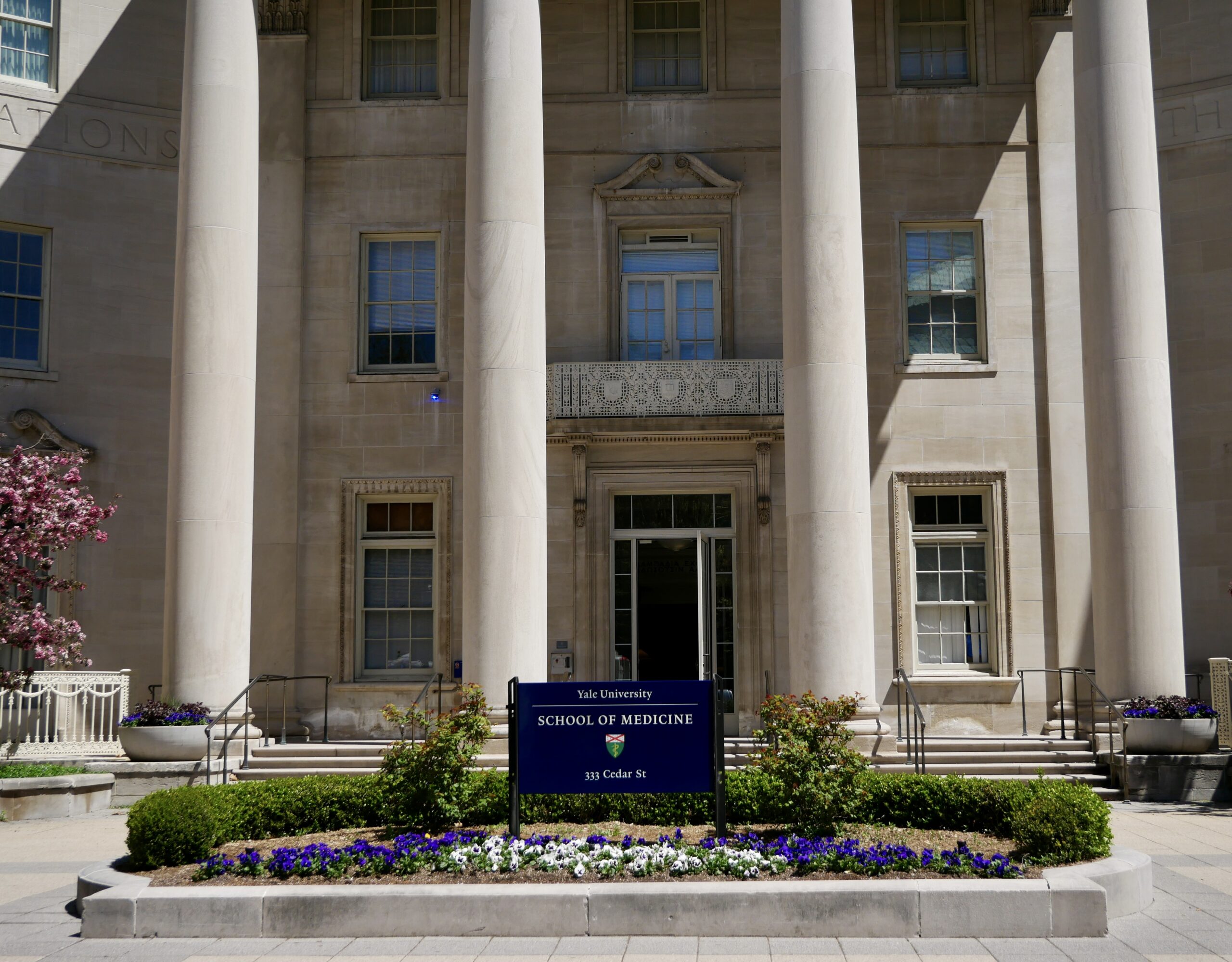First-Generation, Low-income affinity group overcomes obstacles to success at the School of Medicine

YuLin Zhen, Photography Editor
When Morgan Brinker MED ’26 attended the School of Medicine’s Second Look experience — events designed to help admitted students explore Yale’s culture and community — she was struck by the support available for students from all backgrounds. Yale had the “strongest community” for first-generation, low-income students, she recalled.
Soon after committing to Yale, Brinker joined Yale First Generation/Low Income, or YFLI, an affinity group within the School of Medicine that provides a network of resources and guidance for students from underprivileged backgrounds or those who are the first in their families to pursue a four-year college degree.
Within his first few days at the School of Medicine, Javier Sanchez MED ’27 met Brinker, and she invited him to join her in attendance of YFLI programming.
“The group of leaders and the members of YFLI were very helpful in my integration within the first month. I mean, it was the one affinity group that met every other week, and that left such a huge impression on me,” Sanchez said.
Both students became hooked on the group. Brinker served as co-president of YFLI alongside Linda Lin GRD ’30 throughout 2023, and Sanchez currently acts as mentorship coordinator. With this newer leadership, YFLI, which was first conceived in 2017 by Mytien Nguyen MED ’26 and Seong Im Hong MED ’21, has continued to carry with it an ethos of inclusivity.
This past August, in collaboration with Dean Marietta Vazquez and the School of Medicine’s Office of Diversity, Inclusion, Community Engagement and Equity, YFLI hosted a half-day orientation for medical students identifying with the FGLI community — a feat that hadn’t been previously accomplished. The event, spearheaded by Vazquez and Sanchez, included a panel with medical students, residents and faculty who identify as FGLI, conversation around an article by the Association of American Medical Colleges on professional support for FGLI medical students, reflective writing and small group exercises to help participants identify their personal values.
“We really wanted to create an inclusive space to show students that they already come in with a lot of tools under their belt, rather than focusing on what they lack,” Sanchez explained.
He noted that the goal of the orientation was to wholeheartedly empower students as members of the School of Medicine community.
Sanchez also reflected on the resources available through the School of Medicine, which benefit all medical students, but most especially those who identify as FGLI and may desire additional support.
“A big part of medical school is acknowledging and understanding and really embodying a lot of the ‘hidden curriculum’—the expectations that are present from day zero,” Sanchez said. “One program the school offers to help with this is the Longitudinal Coach Program.”
The Longitudinal Coach Program, introduced with the class of 2027 and extended to subsequent classes, pairs every medical student with a faculty member who provides support throughout their education. The pairings help students achieve their personal milestones and navigate the challenges of medical training. The program is now embedded in the curriculum and exists alongside the First-Generation Low-Income Longitudinal Mentorship Program, a similar initiative created in 2023 by Dr. Jaime Cavallo, assistant professor of urology, who herself identifies as FGLI and advises YFLI.
Following the success of the orientation and current support mechanisms, YFLI plans to expand its programming. Lin continues to build on the group’s momentum, even after her leadership tenure.
“When Morgan and I were co-presidents, two medical students from Case Western [Reserve University] reached out to us about collaborating on a national conference for first-generation, low-income medical students,” she recalled.
Now in its early stages, Lin is leading the coordination of the conference, which is expected to be held in a hybrid format to allow participation from both Yale and Case Western students. The group hopes to expand its reach, potentially including undergraduates on a medical track, enrolled medical students and even doctors from institutions across the country.
In addition to her work with YFLI, Brinker is on a task force at the School of Medicine that addresses food insecurity and other unmet basic needs, with which she works to ensure that students facing economic hardship have greater access to nutrition through Cafe Med, the food bar at the School of Medicine.
Brinker’s leadership on this initiative is deeply connected to her own experiences as an FGLI individual in medical school. She recognizes how financial challenges shape her perspective, both in the classroom and in clinical practice.
“Because of my background, I have been able to think about insurance more critically. I understand premiums and deductibles because I have had to personally deal with them, regarding myself and my family, whereas other students may not have had that experience,” she said. “It made me feel like a kindred spirit with patients.”
Lin also shared how her background has been a benefit during her clinical activities, having used her real-world knowledge to better assist patients.
She has found workarounds to language barriers, sometimes asking patients to physically demonstrate their needs, on other occasions simplifying complex diagnoses.
“It’s been really helpful,” she said. “For example, my parents don’t really speak English very well, and I’m very aware of that when I’m communicating with patients who also may not speak much English, or any at all.”
Lin further emphasized the importance of empathy when interacting with patients who may feel insecure about sharing personal circumstances. She aims to communicate that patients should always feel welcome to share confidential health-related information with her.
As they continue their respective medical school journeys, Brinker, Lin and Sanchez remain dedicated to improving the experience for future generations of FGLI students, their own backgrounds serving as assets to the future of healthcare.
The Yale School of Medicine is located at 333 Cedar St.







